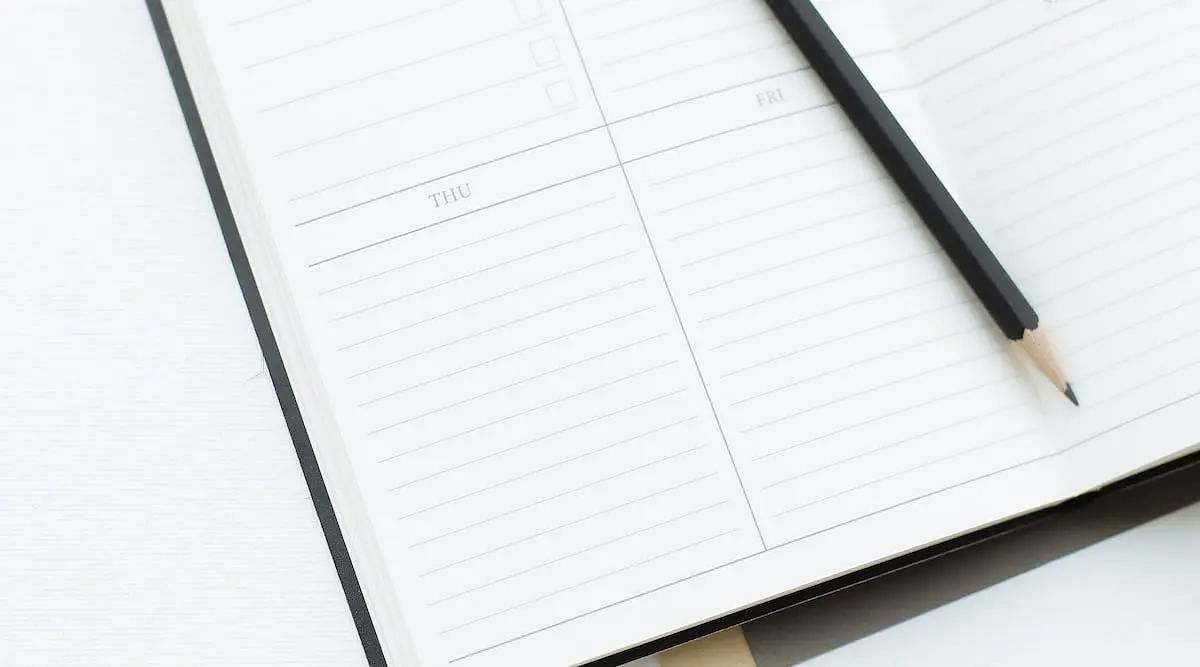UPTET Notification 2023 to Be Issued Soon: Check Paper 2 Syllabus for Elementary Level Teachers
The Uttar Pradesh Basic Education Board will soon release the UPTET 2023 notification for UP Teacher Eligibility Test (UPTET) exam soon on the official website updeled.gov.in.
UPTET Notification 2023: The Uttar Pradesh Basic Education Board will soon release the UPTET 2023 notification for UP Teacher Eligibility Test (UPTET) exam soon on the official website updeled.gov.in. According to information provided by the board, 21 lakh students have registered for the UPTET exam.
The UPTET notification 2023 will be made public soon. The Department of Basic Education reported that 21,65,179 applicants had enrolled for the exam, of which 12,91,627 were for primary and 8,73,552 were for higher primary. Aspirants might also check syllabus and exam pattern for paper 1.
Also Read: CTET Result 2023 for December 2022 Session Released
UPTET 2023 Paper 2 Exam Pattern: Elementary Level
Below are the exam pattern mentioned for the candidates appearing for the primary level for classes VI-VIII.
| Content | No. of questions | Marks |
| Child Development and Pedagogy | 30 | 30 |
| Language I | 30 | 30 |
| Language II (English/ Urdu/ Sanskrit) | 30 | 30 |
| Mathematics and Science (for Mathematics and science teacher) OR Social Studies/Social Science (for social studies/social science teacher) |
60 | 60 |
| Total | 150 | 150 |
UPTET 2023 Paper 2 Syllabus: Elementary Level
Below are the UPTET 2023 Paper 2 Topics mentioned for the candidates for elementary level for classes VI-VIII.
Child Development and Pedagogy Topics
The Child Development and Pedagogy paper will consist of 30 questions and each question carry one marks making a total of 30 marks.
Meaning and principles of learning:-
- Effective methods of learning, influencing the meaning of learning (learning)
- Rules of learning – The main rules of learning of the Thornadikes and their importance in learning
- The key principles of learning and their practical utility in classroom teaching, Thorndike’s attempt and theory and their practical utility in classroom teaching, Thorndike’s theory of love and error, Pavlov’s relation theory of response, Skinner’s introduced learning theory, Kohler’s curve – Meaning and type, plateau meaning in learning and cause and resolution.
Teaching and learning disciplines:-
- Meaning and purpose of teaching, communication, principles of teaching, sources of teaching, teaching methods, new methods of learning (approach), basic teaching, and basic skills of teaching.
Inclusive education guidance and counselling
- Educational inclusion means identity, type, resolution, eg: excluded class, language, religion, caste, region, color, gender, physical skills (visually impaired, hearing impaired and speech/bone impaired), mental efficiency.
- Equipment, materials, methods, TLM, and observations required for inclusion
- Necessary tools and techniques for testing the learning of inclusive children
- Special teaching methods for including children. Such as Braille script etc
- Guidance and counseling for inclusive children – Meaning, purpose, types, methods, requirements, and fields
- Departments / Institutions supporting in consultation: –
➢ Psychology Uttar Pradesh, Allahabad
➢ Divisional Psychology Center (at Divisional Level)
➢ District hospital
➢ Trained Diet Mentor in District Education and Training Institute
➢ Supervision and inspection system
➢ Community and school support committees
➢ Government and NGOs
➢ Importance of guidance and counselling in child learning
Study and teaching
- How children think and learn; how and why children ‘fail’ to achieve success in school performance
- Basic processes of teaching and learning, children’s learning strategies, learning as a social activity, social context of learning
- Child as a problem solver and a ‘scientific investigator’
- An alternative concept of learning in children, understanding child errors as important stages in the learning process
- Perception and sensations
- Motivation and learning
- Tax contributors to learning – private and environmental
Language I Topics
The Language I paper will consist of 30 questions and each question carry one marks making a total of 30 marks.
Hindi
- Unseen passage
- Noun and noun distinction
- Differences between pronouns and pronouns
- Difference between adjectives and adjectives
- Difference between verb and verb
- Speech – intonation, passive voice, eloquence
- The difference in all Hindi language sounds, conjuncts, joint consonants, and lunar points
- Alphabetical, synonymous, antonym, non-synonymous, synonyms
- The distinction of the inexplicable
- Anavar, use of resonant
- Use of different forms of “Su”
- Sentence formation (simple, compound, and mixed sentences)
- Identification and use of punctuation marks
- Use of speech, gender, and time
- Tatasam, Tadbhav, indigenous and foreign words
- Prefixes and attitudes
- Word combinations
- Compound distinctions of the compound, and types of compound
- Idioms and proverbs
- Verbs transitive and intransitive
- Treaties and differences of treaties. (Vowels, Consonants, and Excavations)
- Ornamentation (Alliteration, pun, pun, metaphor, metaphor, inspiration, exaggeration)
Teaching of language development
- Learning acquisition
- Principles of language teaching
- Role of listening and speaking: Language work and how children use it as a tool
- Decisive perspective on the role of the grammar of learning of a language for communicating ideas verbally and in writing
- Challenges of teaching language in a different classroom: language difficulties, errors, and disorders
- Language skills
- Assessing language comprehension and proficiency: speaking, listening, reading and writing
- Teaching-learning materials: syllabus, multi-material, classroom multilingual resources
- Remedial teaching
Language II Topics
The Language II paper will consist of 30 questions and each question carry one marks making a total of 30 marks.
English
- Unseen passage
- Nouns and their kinds
- Pronoun and its kinds
- Verb and its kinds
- Adjective and its kinds & degrees
- Adverbs and their kinds
- A preposition and its kinds
- Conjunction and its kinds
- Intersection
- Singular and plural
- Subject and predicate
- Negative and interrogative sentences
- Masculine and feminine gender
- Punctuation
- Suffix with root words
- Phrasal verbs
- Use of Somebody, Nobody, Anybody
- Parts of speech
- Narration
- Active voice and passive voice
- Antonyms & synonyms
- Use of Homophones
- Use of request in sentences
- Silent letters in words
Urdu
- Unseen passage
- Knowledge of language masters of the tongue.
- Understanding of MukhtalifAsnaafAdabHamd, Ghazal, Qasida, Marcia, Masnavi, Geet, etc. and their difference
- To get information about the situation of the poets and their well-being by the life of the many poets and the lovers
- Achieving eloquence with the help and importance of Urdu language in Mushtaraka Tehzeeb of the country
- Ism and its Aksam, Fail, Sifat, Jamir, Tazkiron Tanias, Tzad’s deemed
- Information about correct tamarind and Arab
- Idioms, acquiring speech from JurbalAmsal
- Knowledge of saints
- The political, social, and ekhalaki mainsail’s being beseeched and keep their attitude on it
Sanskrit
Unseen Passage
- Sandhi – Vowels, consonants
- Incessant
- Compound
- Use of gender, speech, and time
- Prefix
- Synonym
- Antonyms
- Factor
- Ornamentation
- Suffix
- Speech
- Nouns – Knowledge of the forms of all the inflections and words of the following words –
- The word masculine
- The word feminine
- The word neuter
- Inexplicable masculine
- Inexplicable feminine
- Inexplicable neuter
- Postpartum masculine
- Postpartum feminine
- Postpartum neuter
- Ecomant feminine
- Ecomant masculine
- Ecomant neuter
- Rakaranta masculine
- Pronouns
- Adjectives
- Metal
- Numbers
Teaching of language development
- Learning and acquisition
- Principles of language teaching
- Role of listening and speaking: Language work and how children use it as a tool
- Decisive perspective on the role of the grammar of learning of a language for communicating ideas verbally and in writing
- Challenges of teaching language in a different classroom: language difficulties, errors, and disorders
- Language skills
- Assessing language comprehension and proficiency: speaking, listening, reading and writing
- Teaching-learning materials: syllabus, multi-material, classroom multilingual resources
- Remedial teaching
Math and Science Topics
The Child Development and Pedagogy paper will consist of 60 questions and each question carry one marks making a total of 60 marks.
Mathematics
- Natural numbers, whole numbers, rational numbers
- Integer, parenthesis, least common multiple, and greatest common factor.
- Square root
- Cube root
- Identities
- Algebra, Concept – variables, constant numbers, powers of variable numbers
- Addition, subtraction, multiplication, and division of algebraic expressions, coefficients of terms and terms of algebraic expressions, homogeneous and non-homogeneous terms, degrees of expressions, the concept of one, two, and tripartite expressions
- Simultaneous Equations, Square Equations, Linear Equations
- Parallel lines, quadrilateral compositions, triangles
- Circle and cyclic quadrilateral
- Tangent lines to the circle
- Commercial Mathematics – Ratio, Proportion, Percentage, Profit and Loss, Simple Interest, Compound Interest, Tax, Barter System
- Banking – Current Currency, Bills and Cashmemo
- Statistics – Classification of data, pictograph, mean, median and polymer, frequency
- Pie and bar chart, picture of unclassified data
- Probability (probability) graph, bar diagram, and mixed bar diagram
- Cartesian floor
- Mensuration
- Exponential
Teaching related issues
- Nature of mathematical/logical thinking
- Place of mathematics in the curriculum
- Math language
- Community mathematics
- Evaluation
- Remedial teaching
- Teaching problems
Science
- Science in daily life, important discoveries, importance, anthropology, and technology
- Fibers and textiles, from races to textiles. (process)
- Living, non-living matter – fauna, classification of living organisms, classification of plants and animals based on flora and fauna, adaptation in organisms, changes in animals and plants.
- Animal Structure and Functions
- Microorganisms and their classification
- Cell to organ
- Adolescence, disability
- Food, health, sanitation and disease, crop production, nitrogen cycle.
- Animal nutrition
- Nutrition, reproduction, beneficial plants in plants
- Respiration, excretion in organisms, beneficial animals
- Measurement
- Electric current
- Magnetism
- Speed, Force, and Equipment
- Energy
- Computer
- Sound
- Static electricity
- Lighting and lighting equipment
- Air quality, composition, necessity, utility, the ozone layer, the greenhouse effect
- Water requirement, utility, source, quality, pollution, water conservation
- Part, groups of substances, separation of substances, structure, and nature of substances
- Changes in the neighborhood, physical and chemical changes
- Acids, bases, salts
- Energy and heat
- Man-made goods, plastic, glass, soap, clay
- Minerals and Metals
- Carbon and its compounds
- Alternative sources of energy
Teaching related issues
- Nature and structure of science
- Natural Science/goals and objectives
- Understanding and appreciating science
- Approach / integrated approach
- Observation / experiment / investigation (Method of science)
- Innovation
- Curriculum content / help- material
- Evaluation
- Issues
- Remedial teaching
Social Studies and Others topics
The Child Development and Pedagogy paper will consist of 60 questions and each question carry one marks making a total of 60 marks.
History
- Sources of knowing the history
- Stone Culture, Copper Stone Culture, Vedic Culture
- India of the sixth century B.C
- The early States of India
- Establishment of Mauryan Empire in India
- Non-Mauryan India, Gupta period, Rajput India, Punyabhuti dynasty, states of South India
- The arrival of Islam in India
- Establishment, expansion, disintegration of Delhi Sultanate
- Mughal Empire, Culture, Fall
- The arrival of European powers in India and the establishment of the English state
- Expansion of Company State in India
- Renaissance in India, Rise of Nationalism in India
- Independence movement, independence, the partition of India
- Challenges of Independent India
Civics
- We and our society
- Rural and urban society and living conditions.
- Rural and urban self-government
- District administration
- Our constitution
- Traffic safety
- Central and state governance
- Democracy in India
- Country’s security and foreign policy
- Global seas and India
- Citizen protection
- Disability
Geography
- Earth in the Solar System, Globe – Determination of locations on Earth, Earth’s movements.
- Mapping, Four Circles of Earth, Structure – Earth’s Structure, Major Structure of Earth
- India in the world, India’s physical form, soil, vegetation and wildlife, India’s climate, India’s economic resources, traffic, trade, and communication.
- Uttar Pradesh – Location in India, Political Department, Climate, Soil, Vegetable and Wildlife Agriculture, Mineral Industry – Business Population and Urbanization
- Surface forms, changing factors. (Internal and external factors)
- Atmosphere, hydrosphere
- Major natural regions and life of the world
- Mineral Resources, Industries
- Disaster and Disaster Management
Environmental Studies
- Environment, natural resources, and their utility
- Natural balance
- Use of resources
- Impact of population growth on the environment, environmental pollution
- Waste Management, Disasters, Environmentalist, Award in the field of Environment, Environment Day, Environmental Calendar
Home-work / Home Science
- Health and hygiene
- Nutrition, diseases, and ways to avoid them, first aid
- Food preservation
- Pollution
- Digestive diseases and common diseases
- Home Management, Sewing Art, Washing Art, Cooking, Weaving Art, Embroidery Art
- Learn to pronounce
Physical Education and Sports
- Physical Education, Exercise, Yoga, and Pranayama
- Marching, National Sports and Awards
- Small and Recreational Sports, International Games
- Sports and our food
- First aid
- Importance of drug side effects and measures to prevent them, sports, sports management, and planning.
Music
- Phonetics
- Melody introduction
- Knowledge of rhythm and rhythm in music
- Intense melody
- Vandana IT / Flag Anthem
- Desh songs, country songs, bhajans
- Forest protection / plantation
- Verbal song
Horticulture and fruit conservation
- Soil, Soil Formation, Soil Finishing, Equipment, Seeds, Compost Fertilizer
- Irrigation, irrigation equipment
- Gardening, Gardening School
- Shrubs and vines, ornamental plants, seasonal flower cultivation, fruit cultivation, herb garden, vegetable cultivation
- Amplification
- Fruit testing, fruit preservation – jam, jelly, sauce, pickle making
- Climatology
- Crop circle
Teaching related issues
- Concept and method of social study
- Procedures, Activities, and Discourse of Narrative
- Develop thoughtful thinking
- Inquiry / Empirical Evidence
- Problems of teaching social science / social studies
- Project Work
- Evaluation
The UP Board holds the UPTET exam each year. To find qualified individuals for teaching positions in the UP Board-affiliated schools, the UPTET exam 2023 is held. The UPTET test has two papers: Paper 1 is for students in Classes 1 through 5, while Paper 2 is for students in Classes 6 through 8 as per the UPTET notification 2023.




